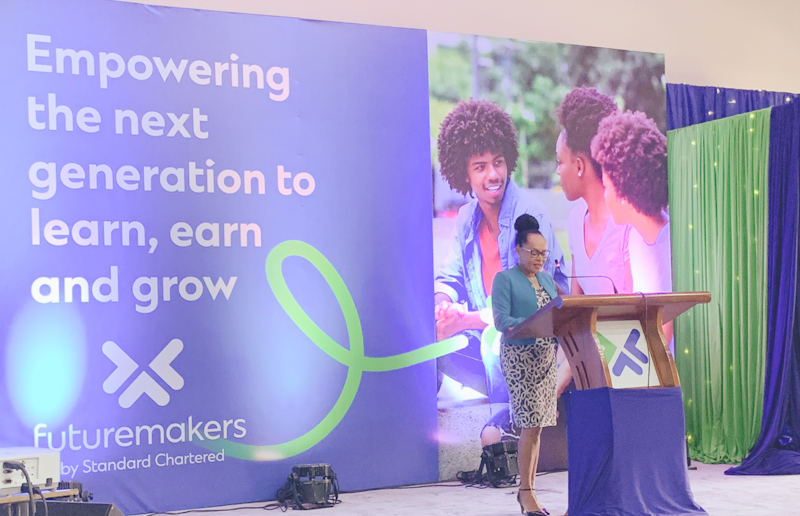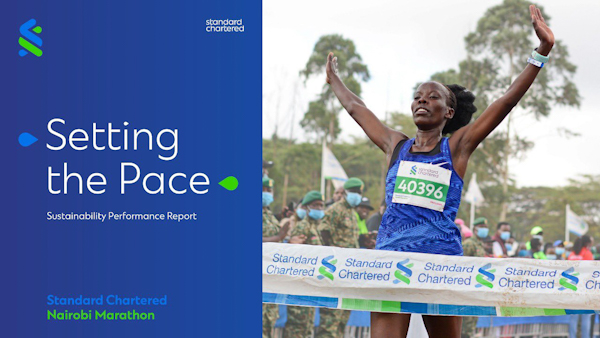The African continent has the youngest population globally, with 70% in sub-Saharan Africa falling below the age of 30. This burgeoning youth population presents a massive opportunity for economic growth – but only if the new generation is empowered to realize their full potential.
It is particularly important for these young individuals to be included in decision-making, accorded the right work opportunities, and innovate. Sadly, the high levels of inequality in education and the job market have presented an almost perpetual challenge.
Unemployment is a big issue. While approximately 10 to 12 million young people enter the labour market each year, only 3 million formal jobs are created by African countries. This leaves most youth unemployed or forced to settle for low-paid and low-productive jobs in the informal sector to make ends meet.
However, the low number of jobs is only part of the problem. A large proportion of the youth lacks the necessary skills they require to secure a living. This is particularly the case for the youth with disabilities – the majority of whom are often impacted by inequalities.
Many youths cannot find employment without the ability to attain basic skills or specific ones that match the labour market demands. And it is for this reason that the Standard Chartered Bank, in mid-2019, launched a program called Futuremakers, an initiative focused on helping the next generation learn, earn and grow.
The Futuremakers program empowers young people to unleash their full potential and lift their participation in the economy. It is part of a global initiative to tackle inequality by promoting greater economic inclusion across global markets.
Futuremakers supports young people from low-income communities, especially girls and people with visual impairments, to learn new skills and improve their chances of getting a job or starting their own business. This is in line with the UN’s SDG Goal 5, which calls for eliminating all forms of discrimination and violence against all women and girls, including those with disabilities. It also stresses the importance of their full and effective participation and equal opportunities in political, economic and public life.
Standard Chartered Bank aims to achieve this through:
- Education – Equipping girls with the confidence, knowledge and skills they need to be economical leaders in their families and communities.
- Employability – Develop opportunities that support young people to become job-ready.
- Entrepreneurship – Provide support, mentorship opportunities and access to resources, such as funding and banking products and services, to female entrepreneurs in the technology sector.
By enabling the young generation and the disadvantaged group to realize their full potential, Standard Chartered Bank aims to promote economic inclusion and drive commerce and prosperity in Kenya and other markets it operates.
Futuremakers builds on the success of Standard Chartered Bank’s Seeing is Believing (SiB) initiative to tackle avoidable blindness and visual impairment. Between 2003 and 2018, the program reached over 176 million people and raised more than USD 100 million.
Through the Futuremakers program, the bank’s global ambition is to raise USD 50 million, empower 500,000 adolescent girls, support 100,000 youth towards employability, and build the entrepreneurship capability of 50,000 micro and small businesses.
In the first phase of the Futuremakers program, Standard Chartered Bank Kenya equipped over 4800 students drawn from 5 universities with employability and life skills. The universities included Jomo Kenyatta University of Agriculture & Technology, Kenyatta University, USIU-Africa University, Multimedia University, and Zetech University.
Similarly, 683 students received structured in-depth work readiness skills through interactive online learning sessions. Additionally, 7 career talks were conducted, reaching over 1,600 students through employee volunteering. This allowed 50 students to job shadow Meru County and The Action Foundation Kenya.
In April 2022, Standard Chartered Bank Kenya injected Kshs 96.9 million towards the program’s second phase, which will run for two years targeting 790 young jobseekers with disabilities, including 150 jobseekers with visual impairment. The expected project outcome of this second phase includes 4,290 beneficiaries gaining the much-needed expertise and skills for the job sector.
And with the bank’s 19th edition of the Standard Chartered Nairobi Marathon slated for 30th October 2022, the proceeds from the run will further accelerate the Futuremakers program, ensuring seamless and more inclusive results.
Overall, such second-chance education for individuals with low or no foundation skills will help these youth remain competitive in today’s job market. The greater appreciation of these young people’s size and economic potential and Standard Chartered’s comprehensive education-to-employment strategies will ultimately unleash sub-Saharan Africa’s tremendous opportunity for inclusivity, growth, and development.
Khusoko is now on Telegram. Click here to join our channel and stay updated with the latest Personal Finance news and updates.





